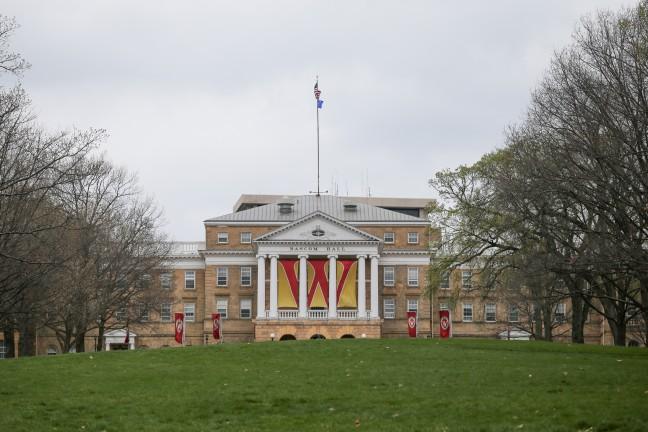The Board of Regents acknowledged the long road ahead to achieving the University of Wisconsin System goal of 80,000 graduates by 2025 during their Thursday meeting in Fond du Lac.
While UW System President Kevin Reilly even referred to the goal as “scary,” he said it is attainable as long there is support from the state and partners in K-12 education.
Although no regent said success would be easy, Reilly highlighted the benefits for education and the state of Wisconsin.
“The keyword here is ‘results.’ If the per capita incomes were raised to Minnesota levels, our citizens would take home [collectively] $29 billion more a year,” Reilly said.
James Thomas, CEO of Society Insurance in Fond du Lac, said degree holders have the critical thinking, decision making and problem solving skills the market will soon need.
“Very soon leaders and professionals at all levels will begin retiring at a steady pace,” Thomas said.
Reilly said currently, there is not a set dollar amount for the initiative’s cost because every university and college in the system will contribute to the goal in a different way.
Regent David Walsh said a lot more data is needed in order to make a reasonable request for the state biennium budget 2011-13. The regents will finalize their state budget request this August, and the next biennium budget will be approved by state legislation in July 2011.
It would not be enough to have programs to make sure students complete their degree; the initiative’s success depends on well-prepared students entering postsecondary education, UW System Vice President for Academic Affairs Rebecca Martin said during the meeting.
Reilly said finding financial aid solutions would be necessary to achieve the graduate goal. The “sticker price” of higher education can be a deterrent for both parents and students.
“Paying for college can be a significant barrier and can shut down the dream before it ever gets started” Reilly said.
High school students who register as Wisconsin Covenant Scholars would receive a letter from Reilly each year, spurring them on to apply for financial aid and register for the ACT.
Reilly said in an effort to expand the pool of college bound high school students, the UW System would work with the Wisconsin Covenant program to find space at another university or college in the system if a student was denied from their initial top school.
“We have a lot of work to do,” Walsh said.
Once the Regents finished their graduate goal discussion, they broke into standing committees. The Education Committee reviewed sexual assault prevention initiatives on each campus in the UW System.
According to the National, State and Campus Statistics on Sexual Assault from the FBI in 2009, UW-Madison had the most sexual assault out of any campus in the UW System.
The total for on-campus and off-campus sexual assault for UW System was 120 assaults from acquaintances, 25 non-acquaintances and 26 unknown.
While the Regents acknowledged the problem may be more serious due to underreporting of sexual assaults, they also highlighted preventive measures each college in the system is taking to combat sexual assault.
The End Violence on Campus was the most notable prevention program at UW.













